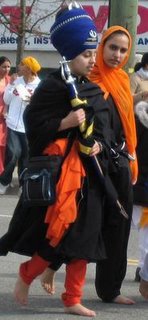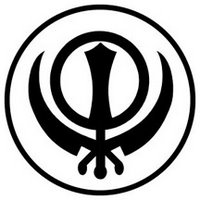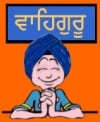"The first step in liquidating a people is to erase its memory. Destroy its books, its culture, its history. Then you have somebody write new books, manufacture a new culture, invent a new history. Before long the nation will begin to forget what it is and what it was."
Milan Kundera, The Book Of Laughter and Forgetting
I was reminded of this quote while reading the review of The Destruction of Memory: Architecture at War by Robert Bevan.
In times of conflict, buildings are inevitably damaged or destroyed. But there has always been another war against architecture: the destruction of the built artefacts of a people or nation as a means of cultural cleansing or division. In this war, architecture takes on a totemic quality: a mosque is not simply a mosque but represents the presence of a community. A library or an art gallery is a cache of cultural memory – evidence of the reality of that community’s history that extends and legitimizes it in the present.
It is only 21 years ago that along with the loss of many thousands of lives, vital components of Sikh history, life and worship were destroyed when the Indian Army attacked Shi Harmander Sahib in June of 1984.
It also worth bearing in mind that it was not just the Harmander Sahib that was attacked:
… across Panjab hundreds of Sikhs were murdered in the army operation and 42 other Gurdwaras being raided simultaneously as Sri Harmandar Sahib was attacked. Gurdwaras in
Moga, Mukatsar, Faridkot, Patiala, Ropar and Chowk Mehta reported high casualties.

Not content with reducing the Akal Takht to rubble the solidiers then proceeded to loot and destroy the Sikh Reference Library. It is estimated that over 10,000 religious books, manuscripts and relics were looted.
The Sikh Reference Library was established in 1947 by the SGPC based on the Central Sikh Library; which in turn had been setup earlier by the Sikh History Society.
It housed some rare source documents on Sikhism, the origin of Khalsa, hand-written manuscripts, Hukamnamas, Leases, Certificates, ancient pictures …
… according to a publication by Shamsher Singh Ashok (Historian and research scholar of SGPC) called “Sada Hath Likhat Sahit” (our hand-written literature) published in 1968, there were 383 volumes in this library which dealt with 980 different topics. In addition, there were many Hukamnamas by the Sikh Gurus, 2500 hand-written copies of Guru Granth Sahib, a Bir (of Guru Granth Sahib) of Bhai Hardas which bore a handwritten Mul Mantar page by Guru Teg Bahadar Ji. There were many illustrated Birs, Janamsakhis, and rare Sikh scriptures. Among many other it had “Kavendar Parkash by Sant Nihal Singh; Ajit Sagar by Surjan Singh, Bhagat Sudhasar by Bhai Bidhi Das, Bhagat Premakar by poet Jassa Singh, Bansavalinama by Kesar Singh Chhibar and many more such historical books. The library had about 20,000 such books in June 1984 according to the Library officials. There were many copies of Guru Granth Sahib which were extremely valuable. There also was a manuscript which was prepared by Guru Gobind Singh five years after the martyrdom of Guru Teh Bahadar Ji. He himself added the Bani of the Ninth Guru in that manuscript at Damdama Sahib. The date of this copy of Guru Granth Sahib was 1739 Bikrami.
This was a deliberate attack on the Sikh nation and had been in the planning for over a year, with the Indian army rehearsing their attack on a replica of Sri Harmandar Sahib 18 months prior to the final assault, which took place on Guru Arjan Dev Patshah’s Shahadat Gurpurab.
21 years later none of the looted manuscripts have been returned nor has it been officially established why the Army deliberately destroyed the Sikh Reference Library. However not content with physical attacks and the destruction of our literature, new literature that deliberately distorts Sikhism has been given official status in Indian classrooms; in one instance depicting Sri Guru Tegh Bahadar as committing suicide instead of gaining Shaheedi in defending the rights of other religions.
All of which leaves one to ponder further on Milan Kundera words, not only does he speak of the destruction of culture and history, but he explictly mentions the production of new histories as written by others.
I believe it’s worth repeating his words.
"The first step in liquidating a people is to erase its memory. Destroy its books, its culture, its history. Then you have somebody write new books, manufacture a new culture, invent a new history. Before long the nation will begin to forget what it is and what it was."
From: http://solarider.org/blog/















